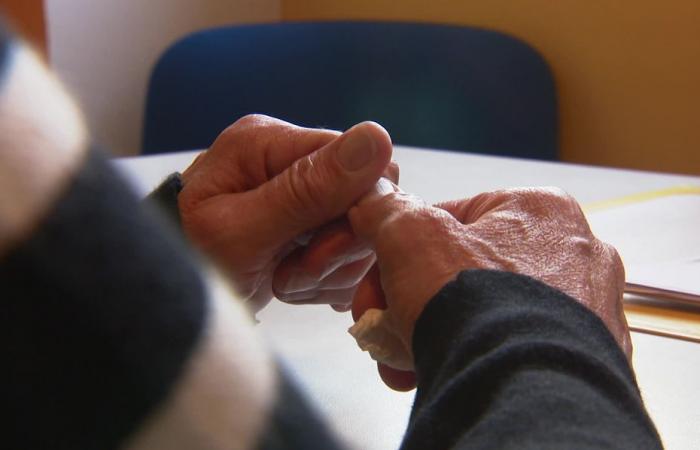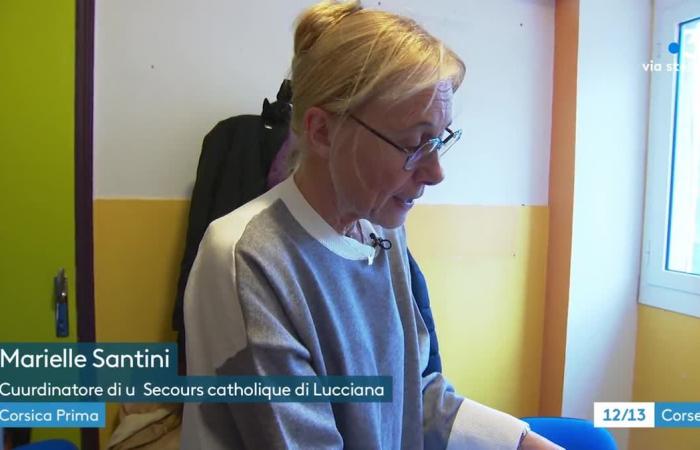As the years go by, poverty gets worse. Secours catholique has published its annual report concerning precariousness in France. The association warns of the deterioration in the standard of living of the poorest and the difficulty in accessing social protection in the face of the dematerialization of administrative procedures. A reality that also affects Corsica. On the island, the 8 branches of Secours catholique made up of 160 volunteers are trying to help them.
Company
From daily life to major issues, discover the subjects that make up local society, such as justice, education, health and family.
France Télévisions uses your email address to send you the “Society” newsletter. You can unsubscribe at any time via the link at the bottom of this newsletter. Our privacy policy
“I’m coming because I can’t pay my bills.”
Marie, who prefers to remain anonymous, found the attentive ear of a volunteer from Secours catholique.
At age 55, this caregiver fell seriously ill and found herself unemployed.
Today, she is trying to survive on a disability pension of 600 euros.
“It's not easy to turn to the family, even at the level of the children, who are just starting their lives… And then, for me, it's shameful to have reached this point in my age, I am not yet 60 years old and I find myself in a situation which is not logical…”
Marie is one of the 2,500 families helped this year in Corsica by Secours catholique.
More and more beneficiaries, who hide their precariousness for fear of being humiliated.
For the association, we must act urgently to try to get them back on track after a life accident.
Volunteers are active at Secours catholique de Lucciana.
•
© FTV
“We process the files sent by social workers, which are very completeexplains Marielle Santini, Coordinator of the Catholic Relief of Lucciana. NWe are three people in committee, where we examine tAll these files and at the end, we call the beneficiaries, and we tell them what was granted to them. This could be financial aid or service vouchers.”
Poverty “gets worse” and national solidarity “walks away”.
This is the finding of the association's latest country-wide report.
Tightening of criteria, distancing from the administration: this is an obstacle course to access aid.
“We see that more than a third of people meet the criteria for access to the RSA or the solidarity allowance for the elderly but, in concrete terms, do not benefit from this aid, do not touch it and even do not receive it. don't ask”notes Hervé Rameau, vice-president of Catholic Relief in Corsica.
Sometimes, the efforts of the association's small hands bear fruit.
Josiane, retired for a long time in an impasse, finally sees the end of the tunnel: “Catholic relief brought me a lot. I was in an abyss and when I showed up here, there were already smiles, the welcome and that cheered me up a little… And the help of course, when you get a little pension for nothing at all, that we cannot pay for your electricity, that we cannot pay your rentit's hard…”
Women are the first victims of poverty.
In 2023, in France, more than a million people in precarious situations have been helped by the association.
The report by Juliette Vincent and Mathilde Boucher:
duration of video: 00h03mn02s
“When you receive a small pension, when you can’t pay your electricity, your rent, it’s hard”: report from Secours catholique de Lucciana in Haute-Corse
•
©J. VINCENT – M. BOUCHER / FTV







